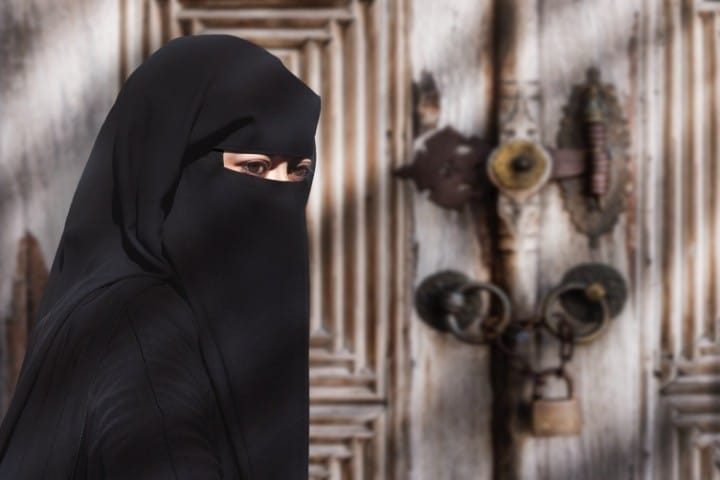
It’s a now old story: Man will so often tackle a radical mistake with another radical mistake and, in so doing, sometimes administer a “cure” worse than the disease. This appears to be the case again, too, with a proposal to make so-called gender apartheid illegal under international law.
The issue: Aghast at how women’s treatment is worsening in Afghanistan and Iran, some want to shackle the whole world with laws that would ban, as writer Akanksha Khullar puts it, “the social, economic or sexual discrimination of individuals based on their gender identities or sex.”
Khullar, a visiting fellow with the Observer Research Foundation, cites a “diverse group of female leaders” in Iran and Afghanistan as calling for such a prohibition. But one could wonder: Do they know that Khullar and others are piggybacking the MUSS (Made-up Sexual Status — “gender identities”) agenda on their women’s “rights” appeal?
Do they know that this agenda has been used to enable men masquerading as women to invade women’s arenas, such as restrooms, locker rooms, and sporting and other competitions?
Do they know that the very people pushing this agenda most ardently claim to not even be able to define what a woman is?
Moreover, even if the MUSS agenda were omitted and only “sex apartheid” prohibited, this could logically be used to eliminate male-only military drafts and sports-related sex segregation. While this would be a wonderful object lesson in “equality” folly, has Khullar considered such outcomes? (I asked her this via her website; as of publication time, she hasn’t responded.)
Writing at Firstpost Sunday, Khullar relates that a campaign titled “End Gender Apartheid Today” began on March 8, International Women’s Day, to bring attention to women’s plight in Iran and Afghanistan. She then informs that the “word apartheid has been derived from the Afrikaans word ‘apart’ and was first used to describe the institutional racial discrimination of black people in South Africa during the second half of the 20th century.”
“The crime of apartheid—under the international law—however, only applies to racial hierarchies, excluding hierarchies that are based on gender,” Khullar complains.
She later writes that there “exists no legal definition for the term gender apartheid but Karima Bennoune, the Lewis M. Simes Professor of Law at the University of Michigan Law School has described gender apartheid as ‘a system of governance, based on laws and/or policies, which imposes systematic segregation of women and men and may also systematically exclude women from public spaces and spheres.’ Thus, to put it simply, gender apartheid is the social, economic or sexual discrimination of individuals based on their gender identities or sex.”
Explaining what she hopes to remedy, Khullar writes that Afghanistan’s Taliban has banned women from education, working beyond the home, and traveling “long distances without a male chaperone”; and forces “them to follow the prescribed dress code.”
“Similarly, in Iran, women are currently banned from various fields of study [and] sporting events as well as from obtaining a passport or travelling out of the country without the permission of their husbands,” she continues. “Meanwhile, in an attempt to shut down girls’ schools, reports of poisoning in Iranian schools continue to rise with more than 1000 students, mostly girls, falling ill over the past three months.” Khullar warns that these regimes are “gradually erasing them [women] from the public domain.”
Of course, this is precisely what the MUSS agenda she’s promoting is accused of doing — erasing women by allowing men to identify as them at will.
Now, to begin, let’s acknowledge that many Muslim societies do treat women wretchedly. Yet they also often treat Christians, young boys (the bacha bazi, “boy play,” in Afghanistan), and others badly, too. So is this just about women? Or is the issue systemic phenomena? (Whatever the case, feminist crusades are politically correct in the white-knight West.)
But perhaps part of the reason Khullar fancies a “gender apartheid” prohibition wise is that she’s misinformed. Marketing her idea, she writes that “the incorporation of apartheid within the international legal frameworks helped end racial discrimination … in South Africa.” Yet this is not true. Racial discrimination continues — it’s just that whites are now targeted.
This gets at the point: Woke laws are always applied in woke ways — in a discriminatory fashion. Hate-speech prohibitions, for instance, are rife within Western nations and are much more likely to be applied to white-on-black or Christian-on-Muslim criticism than the reverse.
An additional factor with international law is that, much as with gun control, criminals won’t abide by it. China has a million Uighur Muslims in concentration camps and engages in organ harvesting, for example, while North Korea imprisons and executes political dissidents. All these actions and many others worldwide are against “international law” — and Western bodies can’t do a darn thing about them.
Likewise, a “gender apartheid” prohibition would not be likely to change much in Afghanistan or Iran. It’s highly likely, however, that it would be used as a pretext for eliminating bans on MUSS men’s invasion of women’s arenas. (This won’t affect Taliban-land: The elders aren’t letting 13-year-old Ahmad use Aisha’s changing room no matter what.)
Ironically, such a law also could be used against the Equality Dogma elephant in the room: the all male draft. How can we preach against sex “discrimination” while perpetuating a system in which only men are required to make the ultimate national sacrifice?
Were moderns wiser, they’d criticize many Muslim-world norms (and some of our own) as violations of the virtues — e.g., Justice, Charity, and Kindness. Emphasizing “new ideas” over eternal principles is a sure indicator that, however bad matters are now, they’re about to get worse.



